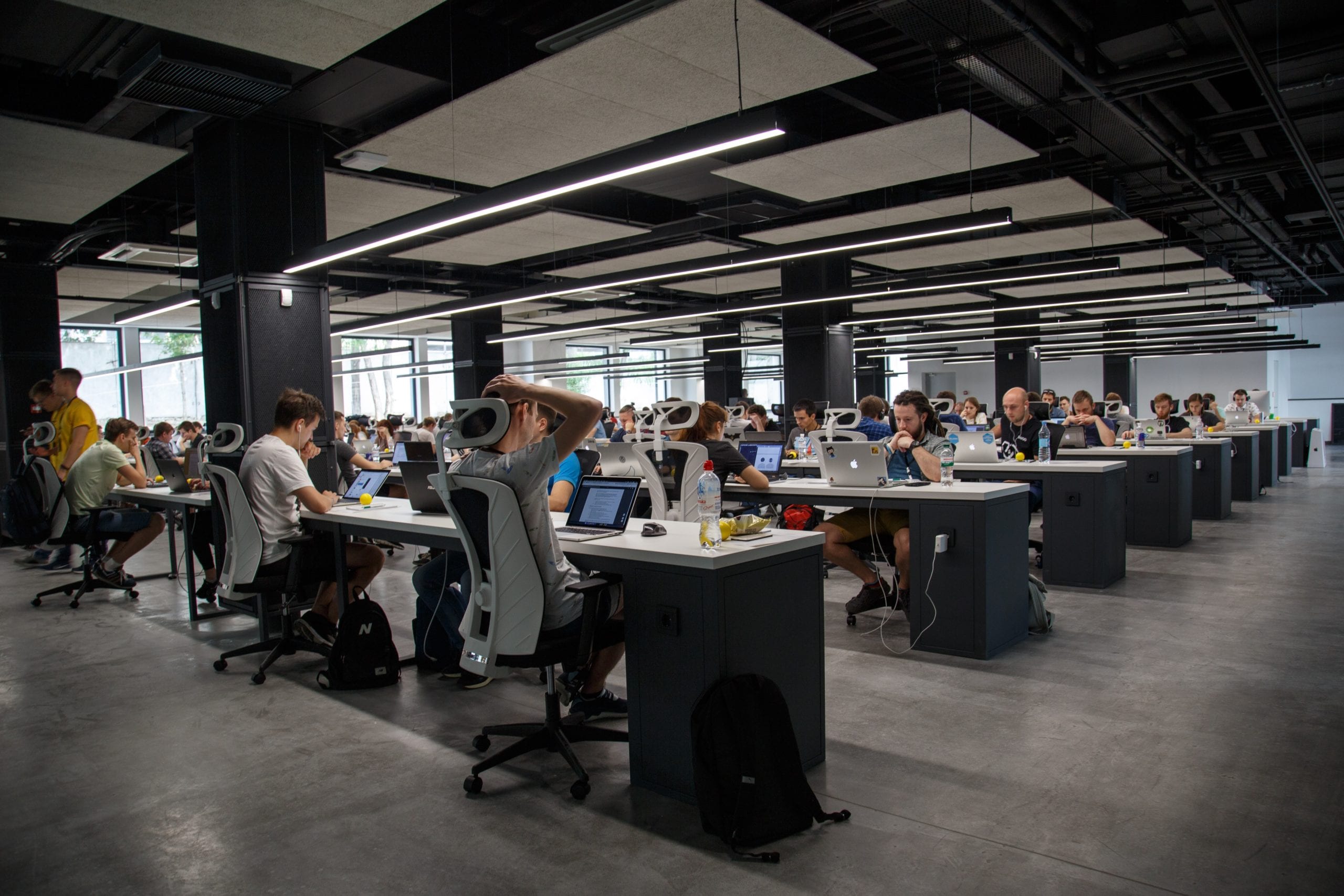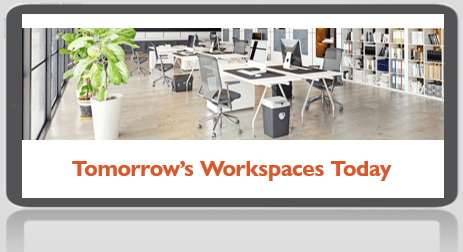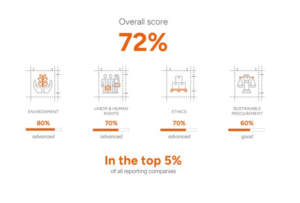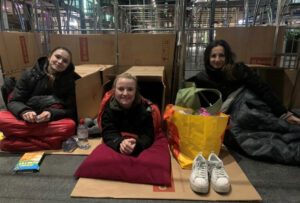Why coronavirus is challenging hotdesking
Workplace design experts predict the coronavirus pandemic could prove a major challenge to the future of hotdesking.
Some of the biggest companies in the country have embraced hotdesking as a way of reducing office space, embracing flexible working, utilising new technology and reducing overheads. Whilst being a hugely successful rollout, how much will things need to change back in the future?
Having spent so long persuading employees to give up their desks and introducing ‘clear desk’ policies to remove personal items such as photographs and memorabilia, the occurrence of the coronavirus pandemic has created a new hurdle.
Our Head of Interiors, Ashley Lawrence, believes the pandemic will have a significant impact on what will make employees feel happy and safe at work. Here is why.
The recent trend in the workspace has been all about hotdesking and open offices but businesses may now have to think about what people will want when we all, eventually, get back to work after the lockdown. It’s going to be a bitter pill to swallow for some employers because a lot of money has been spent on the hotdesking project, but he thinks they will find they won’t have a choice but to make changes if they want to keep their best talent.
When people have been used to social distancing and staying 2m apart, the idea of going into an office and sharing a desk space with dozens of colleagues is going to feel like a daunting challenge.
There are solutions and compromises, however, that can ensure hotdesking is not made totally impossible, so that all the great projects that have been completed over the last few years were not in vain.
Ashley believes compromises could include:
- Extended height wipeable privacy screens to protect workstations.
- Using desk materials with antibacterial properties that are easy to clean and maintain.
- Setting up a cleaning system, so desks are regularly sanitised, and having the equipment available for self-cleaning prior to use.
- Clear desk policies making cleaning quicker and more efficient.
- Baseless monitor mounts, so there are less bacteria traps.
- Advanced, properly maintained air conditioning such as Ultraviolet systems.
- Fresh natural air, utilising office plants and windows.
- Reduce wasted space and plan the office so there is less front on working using a zigzag formation.
This pandemic is going to have a big influence on office design one way or another.
Designers will be looking for smooth surfaces, without patterns or ridges, that are easy to clean. There will be more use of laminates and of high-tech carpets which don’t cling on to dust and germs. We will undoubtedly see new products on the market for this exact reason. The same goes for fabrics used in curtains and blinds, even cleanable wallpaper and anti-bacterial ceiling tiles.
These are all important issues because people have got used to working at home and if employers want to tempt people back into the office, they will need to create an environment they feel happy in. One important factor that he predicts will not be compromised, however, is sustainability.
The pandemic has been like a reset button for humanity. The positive impact our absence has had on the world around is clear to see. It’s made us all think about what matters and that will only strengthen resolve to be sustainable in future and the circular economy principles will be at the heart of that.
The public will want the environment to be considered in everything that businesses do, and that includes the design of the workspace and how employees are expected to work. There are some big changes ahead for all of us.
Explore our interior services and our sustainable workplace solutions.
Related stories
Sustainability remains a top business priority for Crown in the UK & Ireland and globally; we are therefore delighted to have launched our 2023 UKI Sustainability Report!
Crown are delighted to announce that we have been awarded Gold by EcoVadis in 2024 for the second time, reflecting our commitment to and progress in becoming a responsible business.
We supported both Landaid and the YMCA with cardboard boxes for their annual sleepout events. We were incredibly pleased to deliver 1,100 boxes as well as bring along a group of volunteers to the YMCA event.




















